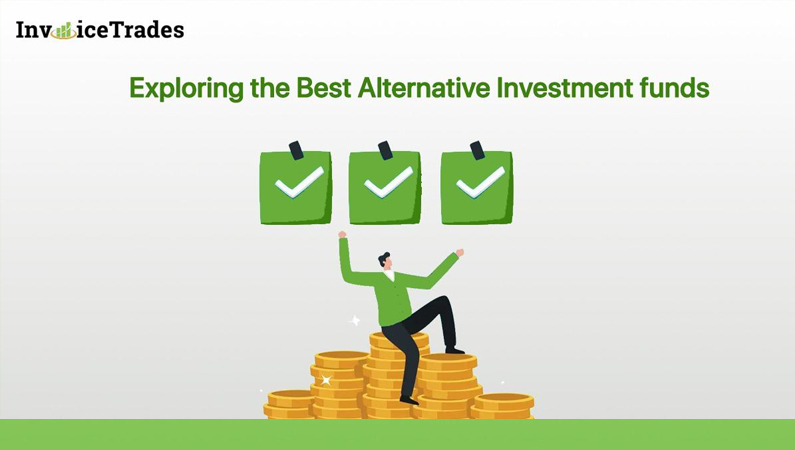In today’s fast-paced financial world, investors are continually seeking innovative ways to grow and diversify their portfolios. While traditional investments like stocks, bonds, and mutual funds remain popular, the demand for alternative investment funds (AIFs) is on the rise. These funds offer unique opportunities to invest in non-traditional assets such as real estate, private equity, hedge funds, and more. This guide dives into the best alternative investment funds available today, helping modern investors make informed decisions to maximize returns and mitigate risks.
What Are Alternative Investment Funds?
Alternative investment funds (AIFs) are investment vehicles that pool resources from multiple investors to invest in non-conventional asset classes. Unlike mutual funds or ETFs, AIFs target specific areas like:
- Real estate
- Hedge funds
- Private equity
- Venture capital
- Commodities
- Art and collectibles
These funds cater to investors seeking high returns, diversification, and exposure to niche markets.
Types of Alternative Investment Funds
- Real Estate Investment Trusts (REITs)
- What They Are: REITs invest in income-generating real estate properties such as commercial buildings, residential complexes, and warehouses.
- Why Invest: They provide steady rental income, potential appreciation, and diversification.
- Risks: Market fluctuations, interest rate changes, and liquidity issues.
- Hedge Funds
- What They Are: These funds use advanced strategies like short selling, leverage, and derivatives to maximize returns.
- Why Invest: Potential for high returns regardless of market conditions.
- Risks: High fees, complex strategies, and limited transparency.
- Private Equity Funds
- What They Are: These funds invest directly in private companies or buyouts of public companies to take them private.
- Why Invest: High growth potential through business development and restructuring.
- Risks: Illiquidity, high investment minimums, and long holding periods.
- Venture Capital Funds
- What They Are: Focus on early-stage, high-growth startups with innovative ideas.
- Why Invest: Opportunity to invest in the next big tech or biotech breakthrough.
- Risks: High failure rates and illiquidity.
- Commodity Funds
- What They Are: Invest in raw materials like gold, silver, oil, or agricultural products.
- Why Invest: Act as a hedge against inflation and currency fluctuations.
- Risks: Price volatility due to geopolitical and environmental factors.
- Infrastructure Funds
- What They Are: Invest in public infrastructure projects such as highways, airports, and renewable energy plants.
- Why Invest: Stable long-term returns and low correlation with traditional markets.
- Risks: Regulatory hurdles and long investment horizons.
- Art and Collectibles Funds
- What They Are: Specialize in investing in rare art, wine, antiques, and other high-value collectibles.
- Why Invest: Unique portfolio diversification and potential for significant appreciation.
- Risks: Limited liquidity and valuation complexities.
Benefits of Investing in Alternative Investment Funds
- Portfolio Diversification: AIFs provide exposure to asset classes that don’t correlate closely with traditional markets, reducing overall portfolio risk.
- Potential for High Returns: Alternative funds often target high-growth opportunities, which can yield substantial returns for investors willing to take on additional risk.
- Hedge Against Inflation: Certain funds, such as commodities or real estate, act as a natural hedge against inflation, preserving your purchasing power.
- Access to Exclusive Markets: AIFs provide access to opportunities typically reserved for institutional investors, like private equity or venture capital.
Things to Consider Before Investing in AIFs
- Risk Appetite: AIFs often come with higher risk compared to traditional investments. Assess your risk tolerance before committing funds.
- Liquidity: Many alternative investments have long lock-in periods or limited liquidity. Make sure you won’t need access to the funds in the short term.
- Fees: AIFs usually have higher management fees and performance charges. Understand the fee structure to ensure it aligns with your expected returns.
- Expertise: These funds require careful analysis and understanding. Consider consulting a financial advisor or researching thoroughly before investing.
Best Practices for Investing in Alternative Investment Funds
- Start Small: Begin with a smaller allocation to alternative investments as you gain experience.
- Research Thoroughly: Investigate fund performance, management expertise, and investment strategies.
- Diversify Within Alternatives: Spread investments across different types of AIFs to minimize risk.
- Stay Updated: Monitor market trends and economic conditions that could impact your chosen funds.
Top Trends in Alternative Investment Funds for 2025
- Sustainability-Focused Funds: With growing awareness of climate change, funds investing in renewable energy, ESG (Environmental, Social, and Governance) assets, and green infrastructure are gaining popularity.
- Tokenized Alternative Assets: Blockchain technology is enabling fractional ownership of real estate, art, and other assets, making them more accessible to retail investors.
- The Rise of Private Credit Funds: As banks tighten lending, private credit funds are stepping in to fill the gap, offering attractive returns to investors.
Is an Alternative Investment Fund Right for You?
Alternative investment funds are not for everyone, but they can play a crucial role in a diversified investment strategy. Whether you’re looking for high returns, inflation protection, or exposure to unique markets, AIFs provide a range of opportunities.
However, they come with complexities and risks that require thorough research and careful planning. By understanding your financial goals, risk tolerance, and investment horizon, you can identify the best AIFs to help you achieve your objectives.
Ready to diversify your portfolio? Start exploring alternative investment funds today and unlock new possibilities for growth and security in your financial journey!
FAQs
- What is an alternative investment fund? A fund that invests in non-traditional asset classes like real estate, private equity, and commodities.
- Are alternative investment funds risky? They can be riskier than traditional investments but also offer higher return potential.
- Who can invest in alternative investment funds? Some AIFs require accredited investor status, while others are accessible to retail investors.
- What is the minimum investment for AIFs? Minimums vary widely, from a few thousand dollars in crowdfunding platforms to millions in hedge funds.
- Are AIFs suitable for beginners? Beginners should start with simpler, less risky alternatives like REITs or commodity funds before exploring more complex options.
